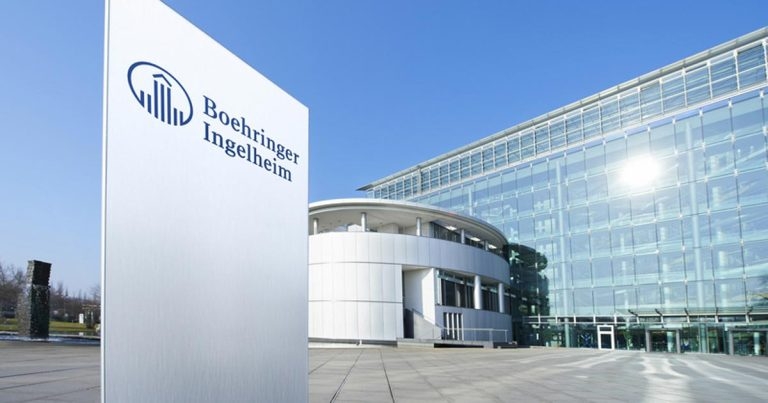24 Mar 2021
Worldwide pharmaceutical company grew by 5% “in highly competitive market”, with net sales of €4.12 billion (£3.55 billion), and success in swine vaccine and its parasiticide Nexgard for dogs.

Boehringer Ingelheim headquarters in Ingelheim, Germany.
Boehringer Ingelheim’s animal health business delivered a strong performance in 2020, despite the pandemic, growing by 5% and recording net sales of €4.12 billion (£3.55 billion).
The swine and pet antiparasitics segments in particular developed successfully and outperformed expectations, the company revealed at a global press conference this morning (24 March).
Overall, all of the company’s businesses, across human and animal health, contributed to net sales and operating income, with net sales at €19.57 billion (£16.87 billion) – a 3% increase on the previous year.
Boehringer Ingelheim invested heavily in research and development (R&D) in 2020, spending €3.7 billion (£3.1 billion) – 7% up on the preceding year – and investing in “innovative medicines and therapies for diseases for which no satisfactory treatments are available”. In particular, efforts to research potential COVID-19-related therapies were accelerated.
Hubertus von Baumbach, chairman of the board of managing directors for Boehringer Ingelheim, said: “We started our R&D for potential COVID-19 therapies early in the first quarter of 2020, recognising the urgent need. Together with many partners worldwide, this work is ongoing.”
Mr von Baumbach added: “Our employees have done remarkable work to fight COVID-19, ensure our medicines continued to reach patients and animals, and physicians continued to be supported. Our achievements in 2020 are the result of their effort.”
Work on COVID-19 therapies includes collaborative development of the first SARS-CoV-2 neutralising antibody, and further R&D of antibodies that can be combined with this neutralising antibody, which is called BI 767551.
Boehringer Ingelheim’s animal health business was strong in its livestock and companion animal sectors, noting the swine and pet antiparasitics segments “in particular developed successfully and outperformed expectations”.
A decrease in African swine fever in China in 2020 saw a strong 14.9% increase in net sales of Ingelvac Circoflex to €264 million (£228 million).
Parasiticide Nexgard for dogs remained the business’ best-selling product, with a 12% growth and net global sales of €804 million (£694 million).
Specifically on animal health, Michael Schmelmer, member of the board of managing directors, said today: “The animal health business, our second-largest business area, delivered a strong performance in a highly competitive market. We strengthened our position as one of the leading providers to pet and livestock owners worldwide. Animal health grew by 5% on a currency-adjusted basis to €4.1 billion (£3.5 billion).
“Nevertheless, we also faced challenges in animal health due to the COVID-19 pandemic. For example, our medicines for ruminants and poultry were unable to contribute to our growth. This was partly due to the interruption of the supply chain due to closures of processing plants.”
Animal health acquisitions in 2020 included of Global Stem cell Technology (GST), a Belgian veterinary biotech firm. It acquired GST to develop and produce stem cell products for horses and pets.